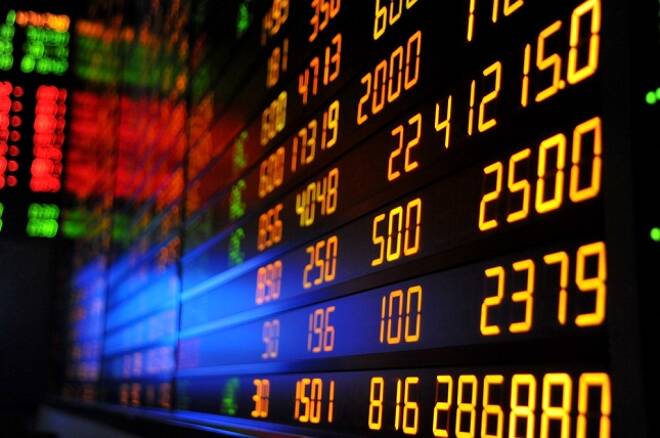Advertisement
Advertisement
Strong Investor Confidence Failed to Lift European Shares
By:
European stock markets are mixed as a stronger than expected German ZEW reading failed to lift the Dax as investors turn cautious ahead of tomorrow's Fed
European stock markets are mixed as a stronger than expected German ZEW reading failed to lift the Dax as investors turn cautious ahead of tomorrow’s Fed announcements and Sunday’s general election in Germany. At still over 12500 the index has made quite a recovery from the readings below 19000 at the end of August and investors seem reluctant to push things further for now, especially as the EUR is starting to eye the 1.20 against the dollar again and a strong ZEW only adds to the arguments of the hawks at the ECB. The FTSE 100 is up as the pound has dropped back from the post-BoE highs against the EUR. Japanese markets rallied in catch-up trade and the nearly 2% gain in the Nikkei was underpinned by a weaker Yen and reports that Prime Minister Abe is considering calling snap elections next month. Elsewhere in Asia markets reported modest losses as investors turn cautious ahead of tomorrow’s Fed announcement. Oil prices are also up, with WTI at USD 50.40 per barrel.
German Zew Investor Confidence Rebounded in September
German ZEW investor confidence jumped to 17.0 from 10.0 in the previous month. Expectations had been for an improvement given the stabilization in stock markets, but in the event, the rise turned out to be more pronounced than anticipated and the current conditions indicator also improved to 87.9 from 86.7 in August. The bounce back in the September reading is encouraging, although it still didn’t bring the reading back to levels seen in July and all in all the numbers confirm that the German recovery remains on track, but also that growth dynamics in the second half of the year are likely to be slightly lower than in the first half.
Eurozone current account surplus widened to EUR 25.1 billion in July, from EUR 22.8 billion in the previous month. The trade surplus narrowed, the services surplus was pretty much unchanged, but the primary income revenue expanded sharply. The unadjusted financial account showed direct and portfolio inflows of EUR 23.1 billion, up from EUR 5.5 billion in the previous month, bringing the total for the year to July to EUR 493.5 billion, down from EUR 560.9 billion in the first seven months last year. The unadjusted current account surplus in the period to July this year amounted to EUR 338.5 billion, down from EUR 373.4 billion in the corresponding period last year.
About the Author
David Beckerauthor
David Becker focuses his attention on various consulting and portfolio management activities at Fortuity LLC, where he currently provides oversight for a multimillion-dollar portfolio consisting of commodities, debt, equities, real estate, and more.
Advertisement
